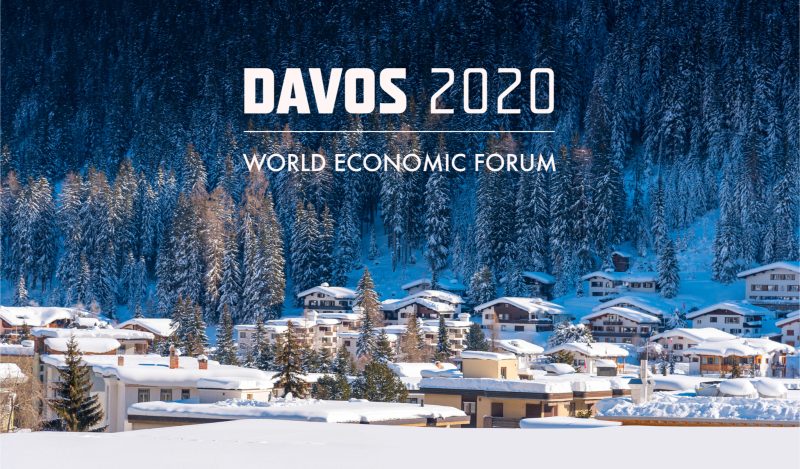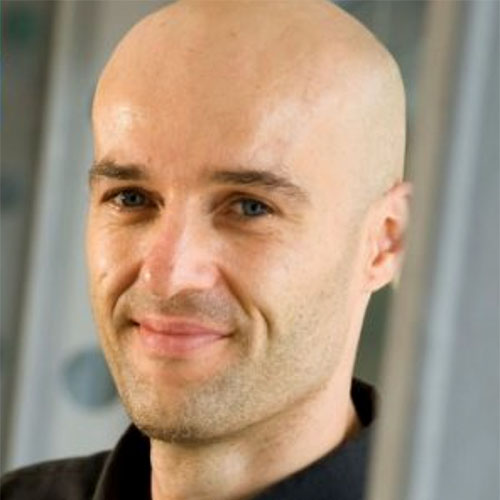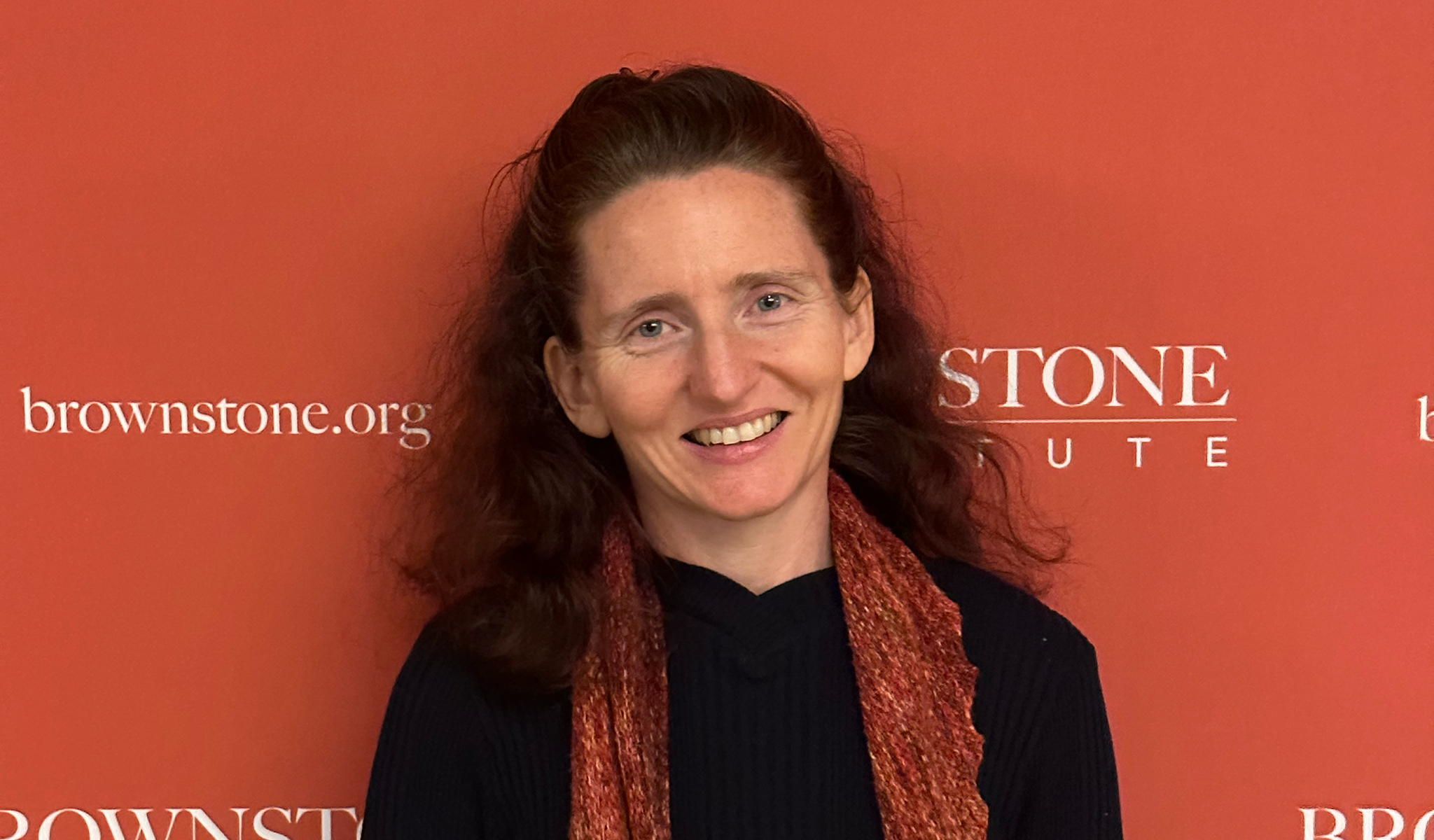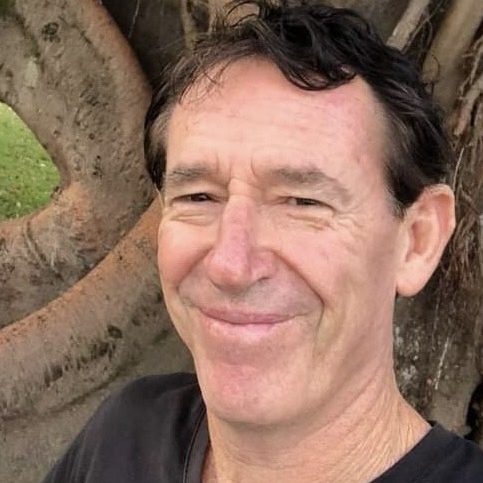Back in 1983, Ronald Reagan colorfully described the Soviet Union as “the focus of evil in the modern world.” Today, it seems we have a new candidate for the headquarters of all evil: the World Economic Forum headed by Klaus Schwab.
The WEF has no borders, includes all nationalities, embraces governments, NGOs and big business, has no military, nuclear arsenal, flag or anthem, and purports to solve all the world’s problems at its annual conference each year while delegates down champagne and caviar. It sponsors a leadership training program that boasts such covid cultists as Emmanuel Macron, Jacinda Ardern and Justin Trudeau. Is Klaus Schwab the first honest-to-goodness Bond villain, bent on taking over (or depopulating) the world?
Professor Schwab certainly looks the part with his German accent and his prize place on top of the Swiss mountains. He also certainly pretends to run the world. In fact, he has been pretending to run the world since the 1970s, when he started his yearly conferences, hoping to get noticed. Getting noticed took decades. Many of the WEF Young Leaders program graduates presently in power around the world only entered his ‘classes’ 30 years after the WEF started. For decades Klaus has lived the ‘fake it till you make it’ adage. Has he finally made it?
The title of Klaus’ 2020 book “The Great Reset”, coauthored with Thierry Malleret, was catchy enough to be taken on as a slogan during 2020-21 by a slew of political leaders wanting to communicate for myriad local political reasons that the pandemic has opened up some kind of grand reinitialization opportunity in global politics.
Few of these leaders will have read the book though, because if they had, they would have been taken aback by some of its contents. For example: “First and foremost, the post-pandemic era will usher in a period of massive wealth redistribution, from the rich to the poor and from capital to labour.”
Such a view is not commonly spouted by the über-rich barons running global corporations or the governments they influence, for the obvious reason that it constitutes a direct attack on their stash. Certainly they might publicly express the wish for less inequality – who wouldn’t? – but many would baulk at a “massive wealth redistribution,” Robin-Hood style, to labourers and away from capitalists like themselves.
In fact, over the last two years the exact opposite has happened: the world now contains more billionaires and more poor people. “You will own nothing and be happy,” another oft-quoted and much-maligned Schwabism, also describes the opposite of what has actually happened, which can be summarized instead as “the rich own lots more while the poor own nothing and are miserable.”
This year, the WEF meeting in Davos, Switzerland held from May 22-26 triggered the usual outpouring of hatred on Twitter and other platforms. The gossip implies that the WEF is secretly plotting to take over the world by means of a secret collaboration between government and big business, as if rich and powerful people needed a vehicle like the WEF for that. It feels satisfying to those wronged by covid policy to think they have identified the head of the snake responsible for the mess.
The WEF, they claim, is the coordinating platform for all the secret deals that make the rich richer and the entrenched heads of government more powerful, while national and local sovereignty is being clandestinely forfeited, leaving the ordinary person to rot away slowly with neither resources nor rights.
These accusations against the WEF are accompanied by misrepresentation and outright fakery. Photos were recently circulated on social media of hundreds of private planes lined up on an airfield, claimed to be those of attendees at Davos 2022 who were (for shame!) flouting their own pretensions to reduce carbon emissions. According to Reuters, one of the two widely circulated photos was in fact taken years ago at Las Vegas Airport around the time of a boxing title fight between Floyd Mayweather Jr. and Manny Pacquiao, while another was taken in January 2016 at a Swiss air force base that is often used by Davos attendees and was probably associated with the event that year.
None of us was able personally to fly to Davos this year (though some of us have attended such events in the past), but no matter: every session of the 2022 meeting from May 22-26 was posted online. This included the opening address, via video link, by none other than Ukrainian president Volodymyr Zelensky, resplendent in his trademark brown tee and staring down the camera with unblinking intensity. Invigorated by the President’s defiant address, attendees turned their attention to the remaining 220 or so sessions that covered every weighty and worldly topic under the sun.
We took the time to watch a few, and found them to share a few characteristics. First, those involved expressed overblown expectations of what would be achieved during the discussions. Second, the discussions themselves were intelligent and informative. Third, the discussions all led to no particular kind of action.
The basic model of a WEF conference session is to subsidize smart people (the presenters) to say smart things to rich people (the audience), who themselves pay the exorbitant conference registration fees in order to network with each other and have smart people pretend to take them seriously for a few days.
In a word, Klaus Schwab is a glorified and very talented conference planner selling flattery. He pretends that $60,000 provides the attending customer with access to crucial world decisions, all made in 4 days. The hordes paying the entry fee schmooze together, down vast quantities of wine and canapes, and participate in panel discussions that purport to solve problems associated with the world’s economy, environment, and society in end-on-end blocks of 45 minutes each. (Actually, it is closer to 35 minutes, because of 10 minutes of Q&A from the audience squeezed in at the end of each session. Given the price tag of attendance, the organizers rightly expect some delegates to feel justified in having their moment on the mic.)
Typical of the level of ambition evident in WEF conference sessions, in his introduction to this year’s session on global taxation, host Geoff Cutmore announced that the incipient panel discussion was about getting to a point where “we all feel comfortable about what we’re paying, and we feel comfortable about what other people are paying and we feel comfortable about what corporations are paying and we all feel comfortable about where that tax revenue is ultimately going.”
Whoa. He might have added, “And if we have a few minutes left over at the end, we’ll work out how to restore the Amazonian rain forest.” The panel consisted of the heads of both Oxfam and the OECD, plus a heavily masked economics professor from Harvard. Imagine what the head of Oxfam would have thought about Cutmore’s pronouncements, given how critical Oxfam has been of the tax evasion and self-enrichment of elites, particularly in the last 2 years. If only he could get the conference delegates to pay their taxes and stop robbing poor people, he could axe Oxfam altogether!
Some sessions do make the stomach turn. For example, in one, Pfizer announced an “Accord for a Healthier World,” with its CEO sitting alongside Bill Gates and two African potentates. Announcements like this are made at the WEF, but would they really not exist if not for the WEF? Unlikely. By providing a platform for such announcements, however, it becomes a lightning rod for suspicion. The WEF styles itself an “International Organization for Public-Private Cooperation,” and like any large entity of its kind, it wants to get even bigger and more influential. But at heart, this is business. Klaus Schwab’s business.
The WEF claims serious positive impacts. For example, its ‘First Movers Coalition’ consists of 50 companies that have committed to investing in green technologies and removing carbon. Sounds great, right? The snag, of course, is that they have set up the measurement in such a way that they are able to decide themselves what is meant by ‘green’ or by ‘removing’ carbon. You can count caretaking a forest today as ‘removing’ carbon, and as long as the audience doesn’t know that you cut down and burned a mature forest in the same place last year, they will applaud!
Similarly, the WEF champions a system of reporting called ‘Stakeholder Capitalism Metrics’ (containing environmental, social, and governance, or “ESG,” measures), developed in a cooperative effort with major accounting firms and adopted by 70 companies. Paying a reasonable amount of taxes is not in those KPIs. Nor is free speech. Metrics, but not as you know them.
But what about the smoking gun represented in the many top politicians of today’s world who graduated from the WEF’s Young Leaders program? What about the creepy 2019 WEF conference about what to do in a pandemic?
On the Young Leaders program, it is undoubtedly true that the WEF has become a very successful job networking organization. But it did not invent networking. Networking societies for the rich and powerful have existed for centuries. Think of the Freemasons, the Rotary society, Chatham House, private high schools, Oxbridge, or the Ivy League. The rich and powerful will network with each other, come hell or high water, WEF or no WEF.
Perhaps those who met at the WEF have gelled together on an evil ideology that is bad for the world, but that ideology is clearly not the “Great Reset” ideology articulated by Schwab, since they are not following it in the slightest. Why then does Schwab not protest at how politicians are pretending to enact a Great Reset that is the very opposite of what he advocated in his book? Because he does not really care about his own ideas. A puffed-up conference organizer, Schwab follows his flock of customers rather than leading them. He is being used as a stooge.
OK, but what about that 2019 pandemic simulation conference? Again, you can read all about it online, a level of publicity for their plans that is surely not what you would expect of Bond villains. In these simulations, the WEF folks came to the conclusion that during a pandemic, movement and trade should not be disrupted because of the high costs to society. Yes, you read that right. Once again, this is the very opposite of what was actually done.
The WEF pandemic conference was just one of the many ‘war games’ simulations that entertain people continuously all around the world. Pandemic simulations this week, asteroid simulations next week, killer bee simulations after that. Rather a lot of problems can be covered off in 220 sessions, and one of them is bound to be tomorrow’s news.
The total disconnect between what his pandemic conference said should be done and what actually happened during covid times is once again proof that Klaus is not led by his principles. If he were, he would have been loudly protesting what has gone on over the past two years. Instead, he is merely riding his “good luck” that the leaders who came to drink champagne at his events have now embraced him as their supposed figurehead.
Since he is well into his 80s, Klaus probably figures that if an angry world population came to believe that he was responsible for the disaster that has befallen them, he’d be dead long before they came for justice. Thierry Malleret, his younger co-author on “The Great Reset,” has more to worry about in that regard!
The WEF, in sum, is hot air all the way. It is led by a man who epitomizes pomp, which is nothing new in the circles of the rich and powerful. WEF-approved hot air is no different to the regular variety.
Sure, it’s a place where schmoozing and coordination happen, but the WEF invented neither schmoozing nor the idea of an old-boys club. It is simply the current clubhouse. The real culprits will find another venue the day after the WEF’s shingle is taken down.
Join the conversation:


Published under a Creative Commons Attribution 4.0 International License
For reprints, please set the canonical link back to the original Brownstone Institute Article and Author.











